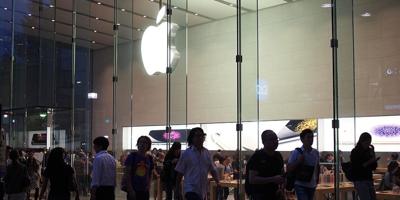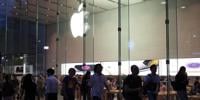
SAN JOSE - A federal judge in San Jose has powered down a class action from an iPhone user who accused Apple of allowing smartphone apps to consume data even after users direct them to stop.
Alisdair Turner’s lawsuit against Apple specifically implicates the iOS 13 version of iPhone’s operating system. Turner alleged that although the phone’s settings allow users to toggle cellular data usage on and off for individual applications, malfunctioning code ignores the toggles.
Turner specifically alleged violations of the California Computer Data Access and Fraud Act and aspects of the state’s Unfair Competition Law. In an opinion filed July 16, U.S. District Judge Edward Davila denied Turner’s motion for class certification, which would’ve included anyone who owned or used an iPhone in the United States on a limited cellular data plan with any installed version of iOS 13.
Davila first noted the proposed class definition is more broad than Turner’s complaint, which focused on iOS versions 13.0-13.5. Even so, he said, there were more than 26.6 million iPhone users on just AT&T and Verizon networks from September 2019 through September 2020, and the allegations are broad enough to assuage concerns about numerosity, commonality and typicality, along with Turner’s adequacy to serve as a class representative.
However, Apple successfully argued against the propriety of certification because user permission and usage of cellular data are, as Davila wrote, “intractably individual questions.”
In order to prevail on the CDAFA claims, Davila wrote, Turner would have to prove Apple acted without permission, and more specifically that it intentionally wrote code allowing iOS 13 to act without permission from phone owners.
“More broadly, permission is the touchstone of Turner’s theory of injury for Article III purposes,” Davila wrote. “Plainly, an iPhone user suffers no injury when her iPhone uses cellular data in ways that she has permitted.”
Because the claims cover only certain iOS releases, and because the allegations stem from activity several years ago, Davila suggested settings for most users have since changed.
“And there is no evidence that Apple systematically recorded users’ cellular data settings so that Turner can refer to Apple databases to fill in that gap,” Davila wrote. “The only way to determine a user’s settings is to ask her. That is an unavoidably individual task — one that may border on impossible when taking into account the passage of time and fading memories. But there is more. Even if Turner could efficiently identify absent class members’ cellular data settings at times when they used iOS 13, he would still need to determine if iOS 13 used cellular data in violation of those settings.”
Further, Davila said, Apple attributes the issue to several different parts of iOS 13 code, not a single bug. That means the technical issue is how iOS 13 interacted with individual applications, and “such an app-by-app analysis is not the kind of common undertaking suitable for class certification.” And even if that were plausible, Turner would still need to offer a practical model for reliably calculating damages.
“Turner has proposed such a damages model, but he explains that he cannot yet execute the model because he lacks key data from an internal Apple dashboard,” Davila wrote. “The court has since denied Turner’s request to access that data in discovery. Thus it is clear that Turner will not be able to calculate damages with his proposed model.”
Davila said Turner’s injury theory relies on “a category called System Services,” common to every iPhone, but he “does not explain where his chain of reasoning goes from there. Ostensibly, Turner believes that a user’s inability to make informed decisions is a harm itself, or such inability might lead to some other downstream harm. Perhaps that could form the basis of a valid theory of injury.”
However, with the exception of the UCL unfairness claim, the complaint must address lack of permission and “Turner cannot ignore the elements of his claims that require permission by advancing a theory of injury that does not.”
Davila also said Turner can’t get an injunction class certified because he lacks standing to seek such relief, chiefly by failing to show a significant likelihood of future injury. Turner doesn’t use any version of iOS 13, nor can anyone download that version of the system.
The judge gave the parties three weeks to propose a schedule for revising any remaining individual claims.
Turner has been represented by attorney David M. Berger and others with the firms of Gibbs Mura LLP, of Oakland, and Tousley Brain Stephens PLLC, of Seattle.
Apple has been represented by attorney Camila A. Tapernoux and others with the firm of Morrison & Foerster, of San Francisco and New York.




